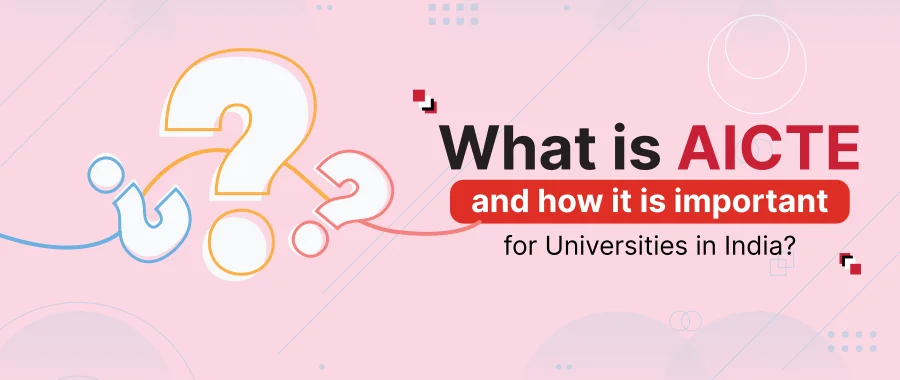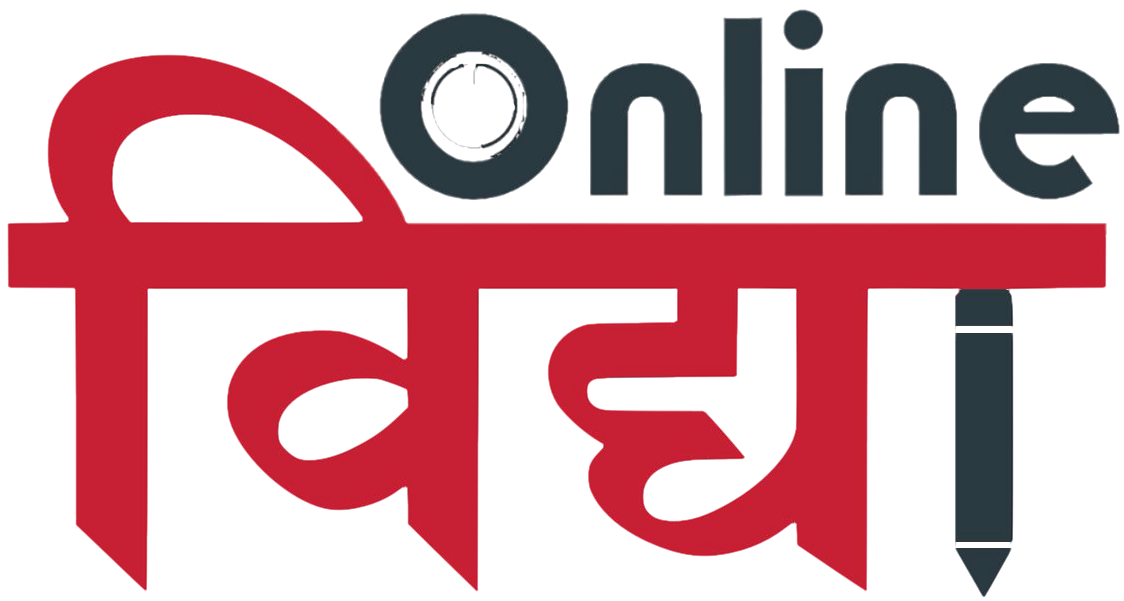Specializations
Courses Available
Courses

What is AICTE and How it is important for Universities in India?
What is AICTE and How it is important for Universities in India?,Dec 11, 2023
University Approvals
Dec 11, 2023
6398 Views
- Share:
Technical education in India had its origins in the mid-19th century, prompting the necessity for an organization that could ensure the quality of technical education across various universities or institutes. Before starting technical education courses, colleges were mandated to abide by specific norms and standards laid out by AICTE. Consequently, the All India Council for Technical Education (AICTE) was established in 1945 to regulate and maintain the standards of technical education in the country.
Introduction to AICTE?
The All India Council for Technical Education (AICTE) stands as an Apex Advisory Body nationally. The council was founded in November 1945 with the primary objective of conducting a comprehensive survey to assess the facilities and provisions available for technical education in different universities and institutes nationwide. The AICTE falls under the Department of Higher Education. The Parliament Act of 1987 granted the statutory body to AICTE. The All India Technical Council functions as a pivotal body, the council is dedicated to fostering India's development in a unified and coordinated manner.
Providing advisory responsibilities for technical education, AICTE exercises statutory powers and undertakes the formulation, maintenance, and planning of norms and standards. Tasked with monitoring accreditation, scrutinizing courses and programs, and allocating funds to universities or colleges from priority areas within technical education, AICTE plays a crucial role in ensuring the harmonized and integrated development of educational institutions nationwide.
Also Read: All about WILP Programme - Sikkim Alpine University
Objective of AICTE
Below-Mention are the several key objectives of The All India Council for Technical Education (AICTE):
- Ensure and enhance the quality of technical education in India.
- AICTE Facilitates accreditation processes to maintain and elevate educational standards.
- Promote and support the development of updated and industry-relevant curriculums.
- Encourage and initiate research and development activities in technical institutions.
- AICTE Promotes innovation and entrepreneurship initiatives among students and institutions.
- AICTE is responsible for granting affiliation and recognition to technical universities/ institutions, ensuring compliance with set standards.
- Support the professional development of faculty members to improve teaching and research capabilities.
- AICTE monitors and evaluates mechanisms to assess the performance of technical institutions.
Importance of AICTE to Universities in India
The importance of AICTE to universities in India is predominant as it serves as the regulatory body responsible for technical education standards to technical universities in India. AICTE ensures the quality, relevance, and global competitiveness of these technical universities by setting and enforcing attentive standards. Through accreditation, curriculum development support, and fostering research and innovation, the All India Council of Technical Education (AICTE) plays a crucial role in shaping the landscape of technical education, enhancing the overall academic experience, and facilitating the global recognition of Indian universities.
Bureaus of AICTE
The Bureaus fall under the All India Council for Technical Education (AICTE) are mentioned below:
- Academic Bureau: Responsible for academic policies, curriculum development, and related matters.
- Approval Bureau: Deals with the approval process for new technical universities/ institutions, courses, and other related approvals.
- Research and Institutional Development Bureau: Focuses on promoting research and development activities in technical universities.
- Quality Assurance Bureau: It ensures and enhances the quality of technical education through accreditation and quality improvement initiatives.
- Planning and Coordination Bureau: Handles planning, coordination, and monitoring of AICTE's activities.
- Administration Bureau: Manages administrative functions and ensures smooth operations of the All India Council for Technical Education (AICTE).
Roles and responsibilities of AICTE
- AICTE evaluates and accredits technical universities to ensure they meet quality standards.
- The Council facilitates the development and update of the curriculum to keep it aligned with industry needs and technological advancements.
- It Monitor and maintain the quality of technical education across universities or colleges through guidelines and benchmarks.
- AICTE grant approvals for the establishment of new technical Universities or colleges and programs.
- Develop guidelines and standards for technical education ensuring uniformity and quality.
- AICTE safeguards the interests of students by ensuring a helpful learning environment and addressing grievances.
- All India Council for Technical Education (AICTE) ensures that technical universities/ colleges abide by the regulatory framework and follow the prescribed norms.
- AICTE continuously monitors the performance of technical universities/ institutions across the nation to ensure modern trends with established standards.
Courses approved by AICTE
The courses approved by the All India Council for Technical Education (AICTE) demonstrate a commitment to fostering excellence in technical education nationwide. AICTE, as the apex body for the regulation and development of technical education in India, meticulously evaluates and approves an array of courses. Wide spectrum courses fall under the approval of AICTE encompassing engineering, management, pharmacy, architecture, and applied arts and crafts, among others. The approvals of AICTE signify not only the following prescribed academic standards but also the incorporation of contemporary knowledge and skills essential for students to thrive in an ever-evolving professional landscape. Students opting for AICTE-approved courses are much more confident in the quality of education, knowing that these programs align with industry requirements and global benchmarks, preparing them for successful and impactful careers in their chosen fields.
Here’s the list of some courses approved by AICTE:
| Bachelor of Technology (B.Tech) | Master of Business Administration (MBA) |
| Bachelor of Pharmacy (B.Pharm) | Master of Computer Applications (MCA) |
| Bachelor of Architecture (B.Arch) | Master of Technology (M.Tech) |
| Bachelor of Hotel Management (BHM) | Master of Pharmacy (M.Pharm) |
| Bachelor of Business Administration (BBA) | Master of Planning (M.Plan) |
How can educational institutions obtain accreditation from AICTE?
Securing accreditation from the All India Council for Technical Education (AICTE) involves a comprehensive process that educational institutions must follow. To initiate the accreditation process, institutions need to submit detailed documentation and evidence that presents compliance with AICTE's quality standards. The document of approval may encompass aspects such as infrastructure, faculty qualifications, curriculum design, and facilities. Following the submission, AICTE conducts thorough evaluations, including on-site visits, to assess the institution's adherence to established norms. Successful accreditation not only enhances the credibility of an institution/ university but also signifies its commitment to maintaining high educational standards. As the accreditation process can be intricate, institutions often engage in a collaborative effort with AICTE to continuously enhance the quality of technical education provided.
Deemed University's Path to AICTE Approval for University Status
The transformation of a deemed-to-be university into a full-fledged university, as approved by the All India Council for Technical Education (AICTE), involves a systematic process. The institution seeking transition of becoming a university must first ensure it falls under the eligibility criteria of AICTE, including a considerable number of years in operation, academic standards, and the possession of requisite infrastructure. Subsequently, the institution submits a comprehensive application to AICTE detailing its history, faculty, academic programs, and expansion plans. All India Council for Technical Education (AICTE) then conducts a meticulous evaluation by involving on-site inspections, to assess compliance with its norms and standards for technical education. Successful compliance leads to AICTE's approval, typically accompanied by specific conditions. The institution may then need to secure official recognition as a university through notification from the relevant government authorities, marking the completion of the transition process. Institutions must follow the latest AICTE guidelines and collaborate with other regulatory bodies to navigate legal and procedural aspects effectively.
Also Read: Is an online degree valid in another country from an Indian University?

Meet Our Counselling Experts
Get 100% Free Career Counseling




PlacementPartners










Schedule Your 30 min Couselling Session With Today!!
Select a Date of your choice :
You Have Selected Slot on .

